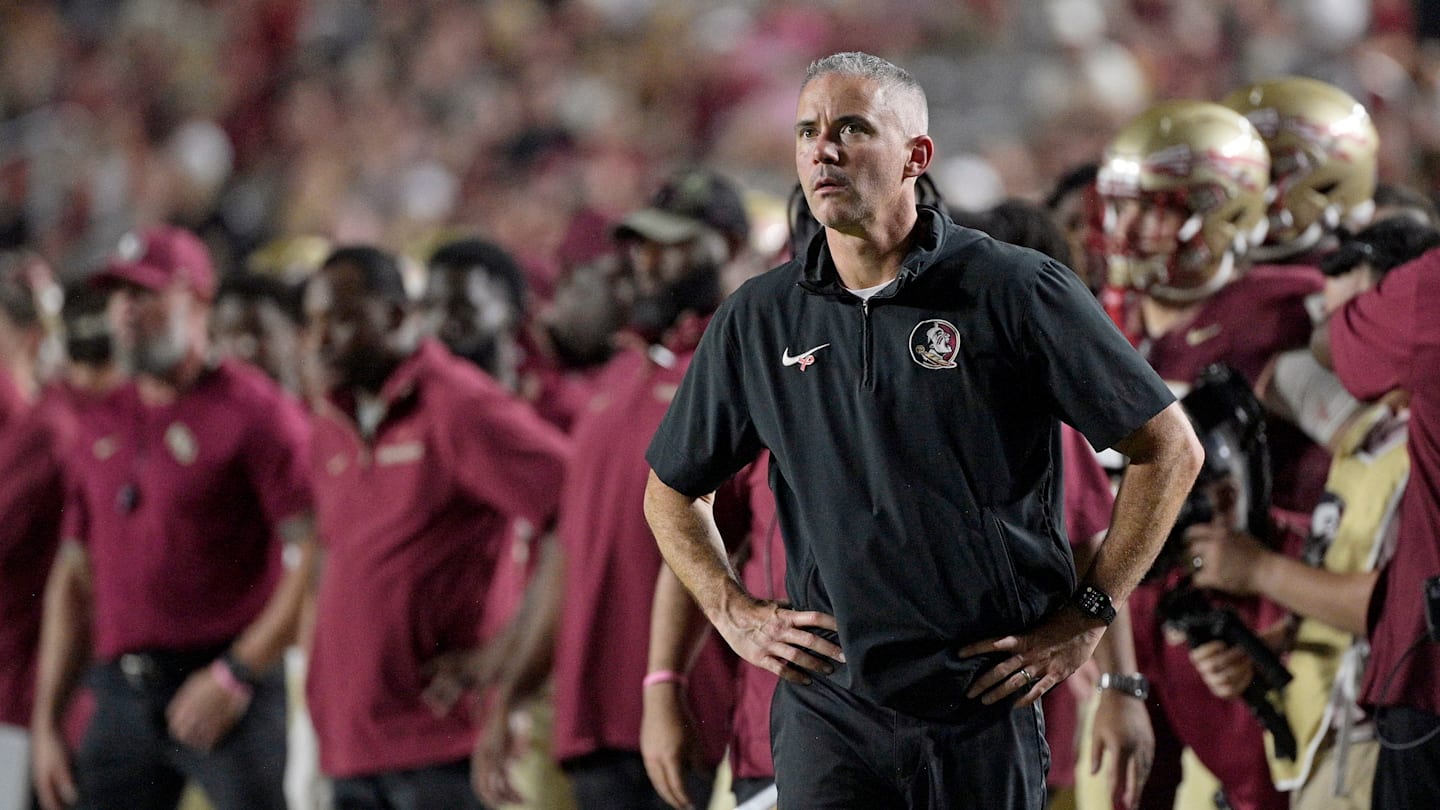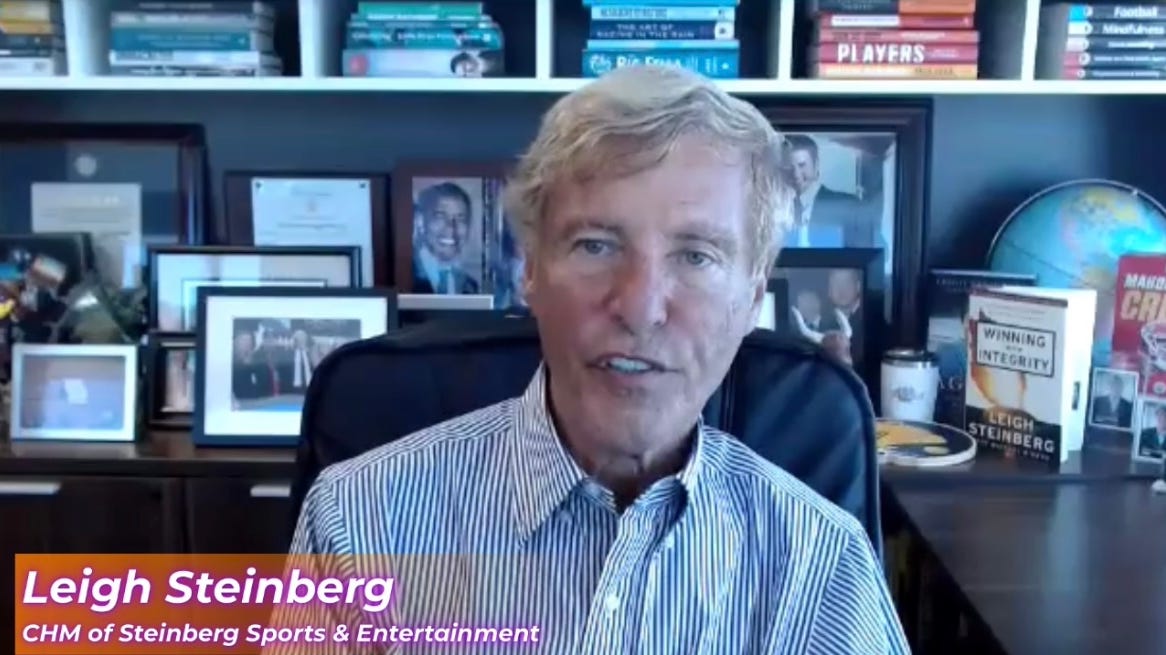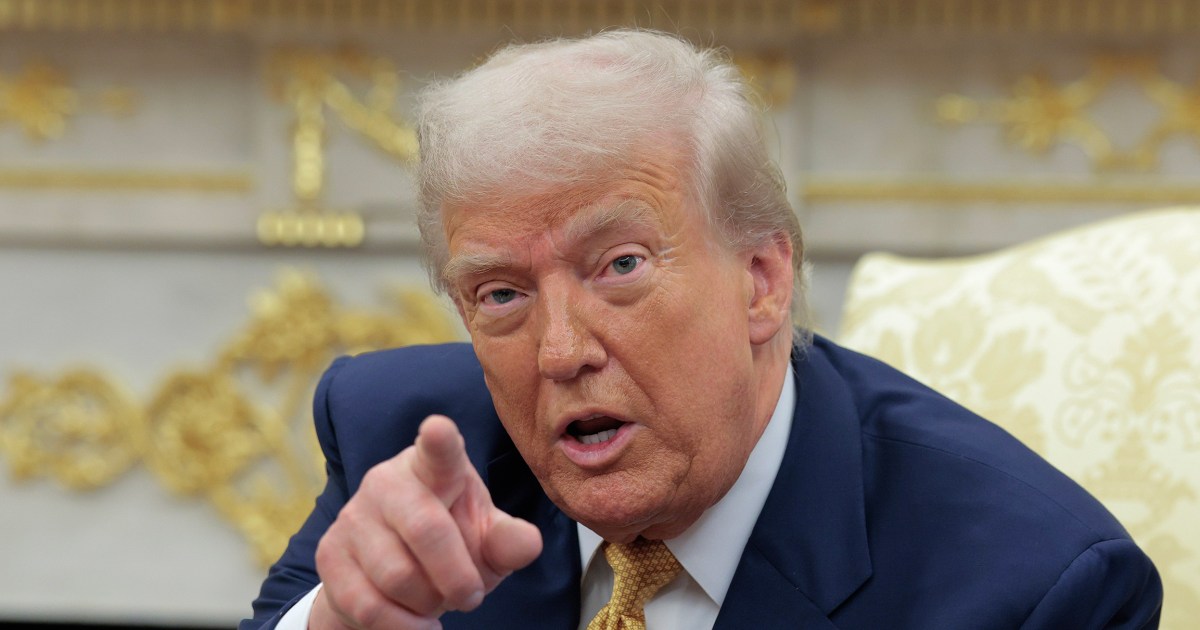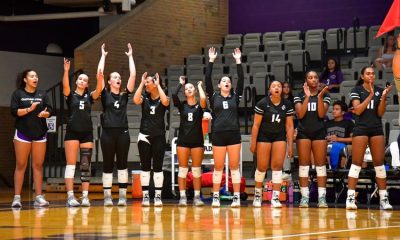NIL
Florida amendment approves ‘forbidden funds’ for NIL payouts through 2028
Florida public universities will be allowed to use “auxiliary funds” to help support the new revenue sharing model established by the House v. NCAA settlement, according to an amendment passed by the Florida Board of Governors on Wednesday. Schools around the country are entering an adjustment period for the major changes brought on by the […]

Florida public universities will be allowed to use “auxiliary funds” to help support the new revenue sharing model established by the House v. NCAA settlement, according to an amendment passed by the Florida Board of Governors on Wednesday.
Schools around the country are entering an adjustment period for the major changes brought on by the House Settlement and new revenue sharing model.
The recent House Settlement ruling ushered in a new era in the NIL space. Beginning July 1, participating schools will be able to allocate up to $20.5 million to athletes this year, with that number increasing incrementally on an annual basis.
That $20.5 million figure isn’t a required landing point for schools. However, staying competitive in the NIL space is certainly important to maintain winning programs at the highest level.
In light of the House Settlement’s approval, which will lead to increased athletics spending, Florida public university leaders like FSU Board of Trustees Chair Peter Collins pushed for the state to amend a law that previously banned using certain funds from use in athletics, according to On3’s Ira Schoffel.
“Auxiliary funds, which come from areas such as housing, bookstores and parking fees, previously were forbidden from use in athletics in an effort to keep state sports programs self-sufficient,” Schoffel wrote.
As a result of the amendment passed by the Florida Board of Governors, schools like Florida State and Florida, among others, will be able to temporarily use up to $22.5 million in those previously forbidden funds for NIL revenue-sharing payouts over a three-year period.
NIL
Donald Trump issues college sports executive order for NIL
NIL Explained: How College Sports Changed Forever Super Agent Leigh Steinberg breaks down how NIL has changed college sports forever, in an interview with “The Sports Professor” Rick Horrow. SEICon President Donald Trump issued an executive order on Thursday, July 24 that attempts to create a national standard for NCAA name, image and likeness programs. […]


NIL Explained: How College Sports Changed Forever
Super Agent Leigh Steinberg breaks down how NIL has changed college sports forever, in an interview with “The Sports Professor” Rick Horrow.
SEICon
President Donald Trump issued an executive order on Thursday, July 24 that attempts to create a national standard for NCAA name, image and likeness programs.
The order is Trump’s latest entry into a debate that has embroiled the NCAA since NIL rules went into effect in 2021, ushering in a wild-west era of college sports that has come under increasing scrutiny by local and national legislators.
Broadly focused on efforts to “save college athletics,” a fact sheet sent out by the White House says the order also seeks to preserve and support “expansion of opportunities for scholarships and collegiate athletic competition in women’s and non-revenue sports.” Most of the NIL money is given to athletes in football and men’s and women’s basketball.
The settlement in the long-running House v. NCAA case went into effect July 1 and allowed schools to directly pay college athletes through a revenue-sharing model.
Trump’s order says, in part, “it is the policy of the executive branch that third-party, pay-for-play payments to collegiate athletes are improper and should not be permitted by universities. This policy does not apply to compensation provided to an athlete for the fair market value that the athlete provides to a third party, such as for a brand endorsement.”
There has been considerable debate since the House legal settlement took effect about the role that collectives can have in providing NIL compensation for athletes, and how to assess those deals in terms of market value.
In May, Trump appeared poised to create a commission co-chaired by former Alabama coach Nick Saban and influential Texas Tech booster Cody Campbell with a directive to explore and address major issues facing college sports. But there have been no announcements regarding that directive.
This week, a bill in the U.S. House of Representatives aimed at restructuring rules around the administration of college athletics passed two committees and is expected to move to the House floor when the summer recess is over in September.
Speaking at a National Press Club event in Washington earlier the day, before the order was signed, NCAA President Charlie Baker was asked about possible executive order on college sports. He said he was open to ideas, but “our focus needs to be on the legislative process.”
The leaders of three House committees issued a statement lauding the order, but indicating that they plan to move forward with the legislation. While Trump’s order directs various cabinet secretaries to work on various issues, the bill, for example, has antitrust-exemption language that specifically would allow the NCAA, and potentially the new College Sports Commission, to make operational rules affecting schools and athletes in areas that have come into legal dispute in recent years. That would include rules about transfers and the number of seasons for which athletes can compete.
“We thank President Trump for his commitment to supporting student-athletes and strengthening college athletics in the NIL era,” read the statement from Rep. Brett Guthrie, R-Ky., who chairs the Energy and Commerce Committee; Rep. Tim Walberg, R-Mich., who chairs the Education and Workforce Committee; and Rep. Jim Jordan, R-Ohio, chair of the the Judiciary Committee. “The SCORE Act, led by our three committees, will complement the President’s executive order, and we look forward to working with all of our colleagues in Congress to build a stronger and more durable college sports environment.”
The order states that athletics departments with more than $125 million in revenue in 2024-25 “should provide more scholarship opportunities in non-revenue sports than during the 2024-2025 athletic season and should provide the maximum number of roster spots for non-revenue sports permitted under the applicable collegiate athletic rules.”
Departments with revenue of more than $50 million in 2024-25 should provide at least as many scholarships in non-revenue sports as they did in 2024-25 and should provide the maximum numnber of roster spots for non-revenue sports.
Departments with $50 million or less in 2024-25 “should not disproportionately reduce scholarship opportunities or roster spots for sports based on the revenue that the sport generates.”
Under the House settlement, the NCAA’s sport-by-sport scholarship limits were replaced by sport-by-sport roster limits. Many top-revenue schools have been planning to add scholarships in a variety of sports. They also have been dealing with the prospect of having to cut athletes because of the roster limits.
The order directs the Education Secretary, “in consultation with” the Attorney General, the Secretary of Health and Human Services and the Federal Trade Commission chair to advance the order’s policies.
It also directs the Labor Secretary and the National Labor Relations Board to “determine and implement the appropriate measures with respect to clarifying the status of collegiate athletes”. The House bill would prevent college athletes from being employees of their school, conferences or athletic associations.
However, backers of the House bill already had been struggling to find support from Democrats, several of whom criticized the measure after it passed the two commitees on July 23. And that task didn’t get any easier on July 24, when Sen. Chris Murphy, D-Conn., was involved in the re-introduction of two bills. Along with Rep. Lori Trahan, D-Mass., he announced a bill that would help athletes with NIL deals in a variety of ways, including making easier for foreign athletes to make NIL deals in the United States.
Later in the day — but before Trump’s order — Murphy unveiled an effort with Sen. Bernie Sanders, I-Vt., and Sen. Elizabeth Warren, D-Mass., that would make athletes school employees under the National Labor Relations Act and give them the right to organize and collectively bargain. That announcement carried a headline that began: “As Trump, Congressional Republicans Side With NCAA Bosses …”
Murphy’s announcement said this effort had the backing of eight House Democrats and multiple labor unions, including major pro sports players’ associations.
(This story was updated with new information.)
NIL
Donald Trump signs executive order banning ‘pay-for-play’ deals in college sports
President Donald Trump has signed an executive order related to college sports. The order has been long-rumored but was officially signed on Thursday afternoon. According to an official White House statement, the bill will restrict “pay-for-play” arrangements for student-athletes. However, the bill still allows for “legitimate, fair-market-value compensation” from third-parties. With student-athletes now able to […]

President Donald Trump has signed an executive order related to college sports.
The order has been long-rumored but was officially signed on Thursday afternoon. According to an official White House statement, the bill will restrict “pay-for-play” arrangements for student-athletes. However, the bill still allows for “legitimate, fair-market-value compensation” from third-parties.
With student-athletes now able to earn money from revenue-sharing as part of the House settlement agreement that was finalized earlier this year, attention has turned toward NIL agreements that have had very little oversight in recent years. NIL payments from collectives and other third-party institutions were expected to face increased scrutiny moving forward even prior to this executive order being signed. NIL deals worth more than $600 have to be approved by an NIL clearinghouse operated by Deloitte.
President Trump’s executive order also addressed women’s sports. Per the White House statement, the order “requires the preservation and, where possible, expansion of opportunities” in women’s and non-revenue sports. The statement also says the order will take steps to “protect” non-revenue and Olympic sports as it relates to revenue-sharing.
It remains to be seen whether this executive order will have a significant financial impact for college football players. Noted attorney Darren Heitner pointed out that “pay-for-play” deals have already been technically illegal since July 1, 2021.
Revenue-sharing for the 2024-25 season — not including external NIL agreements — is capped at approximately $20.5 million for each athletic department, per the terms of the House settlement. That number is expected to increase in future years.
Here is the full executive order obtained by Yahoo!’s Ross Dellenger:
Spenser is a news editor for Saturday Down South and covers college football across all Saturday Football brands.
NIL
Planet Fitness Named Official Fitness Center of WVU Athletics
Story Links MORGANTOWN, W.Va. – The West Virginia University Department of Intercollegiate Athletics announced today a multi-year partnership with Planet Fitness, one of the largest and fastest-growing franchisors and operators of fitness centers with more members than any other fitness brand, as the “Official Fitness Center of WVU Athletics.” The partnership, which […]

MORGANTOWN, W.Va. – The West Virginia University Department of Intercollegiate Athletics announced today a multi-year partnership with Planet Fitness, one of the largest and fastest-growing franchisors and operators of fitness centers with more members than any other fitness brand, as the “Official Fitness Center of WVU Athletics.”
The partnership, which includes the official designation and prominent, TV-visible signage at Mountaineer football, basketball and baseball games, was secured on behalf of West Virginia Athletics by athletics multimedia rightsholder Mountaineer Sports Properties, the locally based team of Learfield – the leading media and technology company powering college athletics.
“We’re proud to be the Official Fitness Center of WVU Athletics,” said Chelsea Halker, Field Marketing Manager at Planet Fitness. “We’ve been in West Virginia for over 10 years, and this moment really cements that. With 10 clubs and counting, we’re excited to get even closer to the fans and communities we already know and love.”
“We are thrilled to welcome Planet Fitness to our team as the Official Fitness Partner of WVU Athletics,” said Matt Wells, West Virginia University’s Deputy Director of Athletics for External Affairs. “By connecting passionate Mountaineers with convenient, community-centered wellness options, this designation goes beyond branding, it reflects a shared commitment to supporting health and access across West Virginia.”
As part of the partnership, Planet Fitness will launch a targeted social media lead generation campaign aimed at reaching Mountaineer fans across the state. Leveraging insights from Fanbase, the most comprehensive fan data infrastructure in college athletics, Mountaineer Sports Properties identified more than 113,000 fans within five miles and more than 163,000 within 10 miles of franchise locations. The multimedia rights team and the West Virginia Athletics staff will tap into demographic, geographic, and profile data metrics to better target Mountaineer fans and maximize brand partnership opportunities.
“By leveraging Fanbase, we were able to match Planet Fitness’ growth goals with precise fan data and localized strategy,” stated Evan Hawkins, General Manager of Mountaineer Sports Properties. “It’s a clear example of how data and creativity can come together to drive smarter partnerships in college athletics.”
About Planet Fitness
Founded in 1992 in Dover, NH, Planet Fitness is one of the largest and fastest-growing franchisors and operators of fitness centers in the world by number of members and locations. As of December 31, 2024, Planet Fitness had approximately 19.7 million members and 2,722 clubs in 50 states, the District of Columbia, Puerto Rico, Canada, Panama, Mexico, Australia, and Spain. The Company’s mission is to enhance people’s lives by providing a high-quality fitness experience in a welcoming, non-intimidating environment, which we call the Judgement Free Zone®. More than 90% of Planet Fitness stores are owned and operated by independent business men and women.
About West Virginia Athletics
The Department of Intercollegiate Athletics at West Virginia University sponsors 18 varsity sports with more than 500 student-athletes competing in baseball, men’s and women’s basketball, women’s cross country, football, men’s golf, women’s gymnastics, women’s indoor and outdoor track, rifle, men’s and women’s soccer, men’s and women’s swimming and diving, women’s tennis, women’s volleyball, women’s rowing and wrestling. West Virginia University competes in the Big 12 Conference in all sports except men’s soccer (Sun Belt Conference) and rifle (Great American Rifle Conference) and strives in its athletics program for national excellence and prominence.
About Learfield
Learfield is the leading media and technology company powering college athletics. Through its digital and physical platforms, Learfield owns and leverages a deep data set and relationships in the industry to drive revenue, growth, brand awareness, and fan engagement for brands, sports, and entertainment properties. With ties to over 1,200 collegiate institutions and over 12,000 local and national brand partners, Learfield’s presence in college sports and live events delivers influence and maximizes reach to target audiences. With solutions for a 365-day, 24/7 fan experience, Learfield enables schools and brands to connect with fans through licensed merchandise, game ticketing, donor identification for athletic programs, exclusive custom content, innovative marketing initiatives, NIL solutions, and advanced digital platforms. Since 2008, it has served as title sponsor for the acclaimed Learfield Directors’ Cup, supporting athletic departments across all divisions.
NIL
Trump signs NIL overhaul order to curb big money influence in college sports
WASHINGTON — President Donald Trump on Thursday signed an executive order prohibiting “third party, pay-for-play” payments to college athletes, a move the White House is taking to curb “bidding wars” that have roiled college sports in recent years. The order, a fact sheet that was shared in advance with NBC News by a White House […]

WASHINGTON — President Donald Trump on Thursday signed an executive order prohibiting “third party, pay-for-play” payments to college athletes, a move the White House is taking to curb “bidding wars” that have roiled college sports in recent years.
The order, a fact sheet that was shared in advance with NBC News by a White House official, notes that recent court rulings have dismantled the NCAA’s transfer and recruiting rules and “created a chaotic environment that threatens the financial and structural viability of college athletics.”
The order could send shockwaves through college football and men’s basketball, where player recruitment in the so-called transfer portal has become a multimillion-dollar market in recent years, with top teams spending tens of millions to fill out rosters.
The order would not apply to fair-market compensation for athletes who make brand endorsements, according to the White House.
The order also looks to protect women’s and nonrevenue sports by mandating that revenue sharing between universities and college athletes be implemented in a manner that protects those programs.
The president’s order also notes that a patchwork of laws in 30 states have contributed to competitive imbalances in sports.
It was not immediately clear how the proposed order would be enforced, or what mechanisms were in place to ensure revenue is shared more equitably between men’s and women’s and nonrevenue-generating sports.
This is a developing story. Please check back for updates.
NIL
Trump Signs Executive Order on College Sports Pay
Trump Signs Executive Order on College Sports Pay Privacy Manager Link 0

NIL
Trump signs executive order to rein in ‘chaotic’ influence of money on college sports | College sports
Donald Trump on Thursday signed an executive order prohibiting “third-party, pay-for-play” payments to college athletes, a move the White House says is intended to curb the booster-funded bidding wars that have upended the landscape of college sports in recent years. The order asserts that recent court rulings and a patchwork of conflicting state laws have […]

Donald Trump on Thursday signed an executive order prohibiting “third-party, pay-for-play” payments to college athletes, a move the White House says is intended to curb the booster-funded bidding wars that have upended the landscape of college sports in recent years.
The order asserts that recent court rulings and a patchwork of conflicting state laws have dismantled long-standing NCAA rules, creating what it describes as a “chaotic environment” that threatens the financial stability and competitive balance of collegiate athletics.
It marks the most aggressive federal intervention yet in response to the rapid commercialization of college sports, particularly in football and men’s basketball, where top programs now spend tens of millions of dollars to attract and retain athletes through name, image and likeness (NIL) deals.
Under the new directive, schools would be expected to eliminate any third-party NIL payments used as recruiting inducements, while still allowing fair-market compensation for legitimate services such as brand endorsements.
The order also seeks to protect women’s and non-revenue sports, directing athletic departments to preserve – and in some cases expand – scholarship opportunities and roster spots in programs that don’t generate significant revenue. Starting with the 2025–26 academic year, schools with more than $125m in athletic revenue are urged to increase their investment in non-revenue sports, while schools with $50m or more are required to maintain existing levels.
The president’s order points to growing disparities fueled by state-level legislation, including the more than 30 states that have passed NIL laws, and warns that the resulting imbalance has created an “oligarchy” of wealthier programs that can simply outbid rivals for the best players. It also cites rising concerns that runaway NIL spending is draining resources from Olympic and educational sports that form the foundation of America’s athletic system.
“Absent guardrails to stop the madness,” the order reads, “many college sports will soon cease to exist.”
In addition to targeting NIL abuses, the executive order:
-
Calls on the Department of Education, the FTC, and the Department of Justice to develop enforcement and regulatory plans within 30 days
-
Directs the Department of Labor and National Labor Relations Board to clarify the employment status of student-athletes in ways that prioritize educational benefits
-
Instructs federal agencies to use Title IX enforcement, funding decisions, and litigation strategy to protect the long-term viability of college athletics
-
Encourages collaboration with Congress and state governments to advance a national framework
The order highlights the outsized role that college athletics play in US Olympic success, noting that 75% of athletes on the 2024 Olympic team were current or former collegiate athletes, and argues that preserving a broad base of non-revenue sports is essential to maintaining America’s international dominance.
While the order outlines sweeping federal priorities, it remains unclear how many of its provisions will be implemented in practice, particularly in the absence of new legislation. Still, the White House insists the move is necessary to restore fairness and stability to a system that it describes as “drifting toward professionalization”.
“College sports are not, and should not be, professional sports,” the order declares. “A national solution is urgently needed before it’s too late.”
-

 College Sports2 weeks ago
College Sports2 weeks agoWhy a rising mid-major power with an NCAA Tournament team opted out of revenue-sharing — and advertised it
-

 Sports2 weeks ago
Sports2 weeks agoNew 'Bosch' spin
-

 Fashion1 week ago
Fashion1 week agoEA Sports College Football 26 review – They got us in the first half, not gonna lie
-

 Sports1 week ago
Sports1 week agoVolleyball Releases 2025 Schedule – Niagara University Athletics
-

 College Sports3 weeks ago
College Sports3 weeks agoMSU Hockey News – The Only Colors
-

 Sports3 weeks ago
Sports3 weeks agoE.l.f Cosmetics Builds Sports Marketing Game Plan Toward Bigger Goals
-

 Health1 week ago
Health1 week agoCAREGD Trademark Hits the Streets for Mental Health Month
-

 College Sports2 weeks ago
College Sports2 weeks agoBuford DB Tyriq Green Commits to Georgia
-

 Youtube2 weeks ago
Youtube2 weeks agoWill LeBron James request a trade? 🤔 Windy says MULTIPLE TEAMS would make offers 👀 | NBA Today
-

 Youtube2 weeks ago
Youtube2 weeks agoWill Giannis DEPART Milwaukee⁉️ + How signing Turner & waiving Dame impacts the Bucks | NBA Today





























